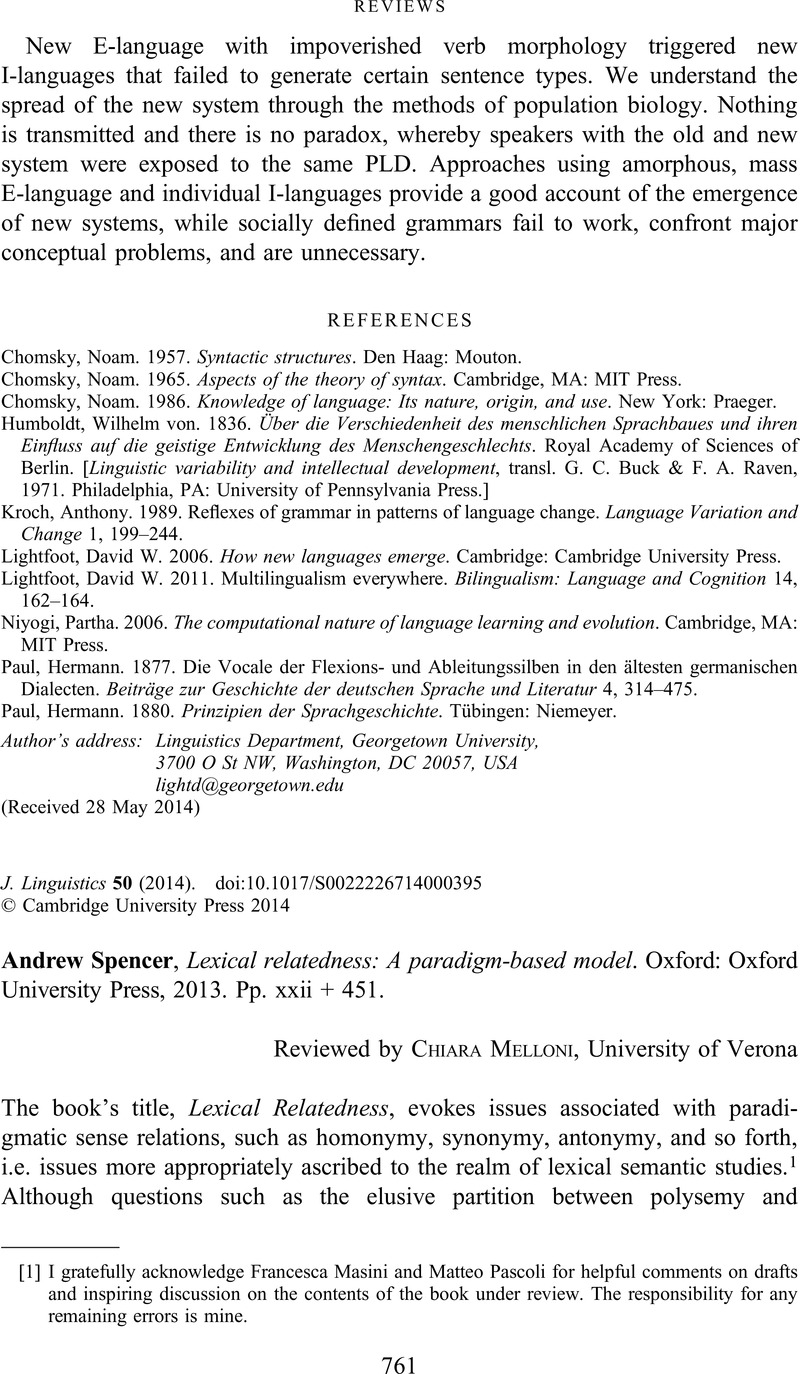No CrossRef data available.
Article contents
Andrew Spencer, Lexical relatedness: A paradigm-based model. Oxford: Oxford University Press, 2013. Pp. xxii + 451.
Published online by Cambridge University Press: 15 October 2014
Abstract

- Type
- Reviews
- Information
- Copyright
- Copyright © Cambridge University Press 2014


